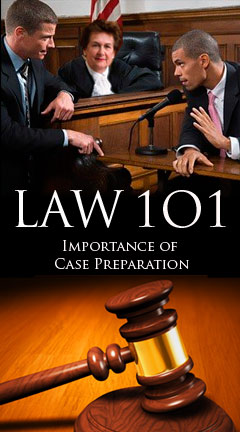Archival Notice
This is an archive page that is no longer being updated. It may contain outdated information and links may no longer function as originally intended.
Home | Glossary | Resources | Help | Course Map
After completing Importance of Case Preparation, the user should:
- Recognize the value of the pretrial preparatory meeting.
- Recognize the uses of and importance of using the scientific method.
- Ensure that adequate facts are obtained before forming an opinion.
- Remain objective and neutral when examining and reporting evidence.
- Communicate, discuss and distinguish facts that do not impact the results.
- Use lay terms and visual aids to assist with testimony.
- Apply terminology correctly.
- Comprehend how the results of the forensic testing fit into the overall theory of the case.
- Recognize potential weaknesses/vulnerabilities of the technology.
- Explain weaknesses in forensic testing methods.
- Perform additional tests when appropriate to strengthen the reliability of the results.
- Apply testing or conclusions to potential challenges in the immediate case.
- Identify prior challenges in the discipline that were successfully resolved and led to remedies.
- Distinguish nonforensic uses of the technology to demonstrate its acceptance in the broader community.
- Ensure that the attorney understands the distinction between objective and subjective statements.
- Ensure that the attorney is aware of the assumptions/presumptions implied or stated when formulating opinions, facts, or a combination of both when supporting conclusions.
- Explain the limitations of the test results and give basic information about the science behind them.
- Recognize the laws regarding the parameters of expert testimony.
Additional Online Courses
- What Every First Responding Officer Should Know About DNA Evidence
- Collecting DNA Evidence at Property Crime Scenes
- DNA – A Prosecutor’s Practice Notebook
- Crime Scene and DNA Basics
- Laboratory Safety Programs
- DNA Amplification
- Population Genetics and Statistics
- Non-STR DNA Markers: SNPs, Y-STRs, LCN and mtDNA
- Firearms Examiner Training
- Forensic DNA Education for Law Enforcement Decisionmakers
- What Every Investigator and Evidence Technician Should Know About DNA Evidence
- Principles of Forensic DNA for Officers of the Court
- Law 101: Legal Guide for the Forensic Expert
- Laboratory Orientation and Testing of Body Fluids and Tissues
- DNA Extraction and Quantitation
- STR Data Analysis and Interpretation
- Communication Skills, Report Writing, and Courtroom Testimony
- Español for Law Enforcement
- Amplified DNA Product Separation for Forensic Analysts


